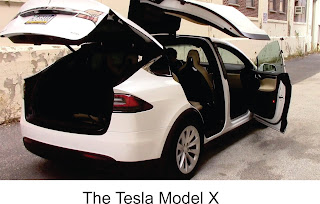An Australian friend of mine tells me he’s on the cusp of buying a brand new Tesla motor car. The $100,000 plus price tag appears not to faze him. I’m envious of course; we recently bought a more modestly priced state-of-the-art Nissan Qashqai. “State of the Art” includes technology that allows the car to park itself into a parallel parking space. Neither my wife nor I have managed to master this piece of gadgetry so it was a selling point more than a practicality.
It’s not surprising that electric cars have become so popular. In 1996 General Motors built the infamous “EV1” to meet California’s proposed stringent carbon emission standards for vehicles. They only leased the revolutionary electric car to enthusiastic customers who queued up to be involved.
Rumour has it that powerful oil company interests put paid the project and GM wrenched the cars back off the lessees, who absolutely loved the car, and crushed them mercilessly in the Mojave Desert.
So where is the oil industry’s anger this time around?
Perhaps they are aware about the true practicality of electric cars. The electric motor is older than the internal combustion engine by more than fifty years, so why should it leapfrog the more modern mechanism? Carbon monoxide emissions are seen as a factor in global warming, but the downsides to electric cars are that they must carry heavy batteries which are bulky, slow to charge and liable to explode if charged too fast.
Another negative is that building an electric car generates far more carbon than creating a comparable petrol engine because so much energy is required for the mining and processing of lithium, nickel and other materials for the battery. The battery accounts for more than half the cradle-to-grave emissions created by an electric car.
Tesla’s decision to build a “Gigafactory” to make lithium-ion batteries may establish a new improved standard for battery technology, but if Tesla gets too big and discourages other researchers from creating better designs it may mean the necessary technological breakthrough will never be achieved.
However one of the great advantages of our free enterprise system is that it reduces the cost of research by putting a financial limit to the extent of the risk of any particular venture. If one company gambles and fails then the harm is limited and the lesson is learned and a new entrepreneur in the market can pick up from where the other left off, potentially vastly improving the outcome.
This follow-on process however can be time-consuming
Next there is the vexed question as to where the extra electricity is going to come from? It’s a long time since we had power cuts in this country, but they could be on the horizon if electric cars are encouraged and new models flood the market at competitive prices.
So my advice to the oil industry would be to invest in building and operating electricity generating companies.
Meanwhile Tesla’s founder and proprietor Elon Musk, who also owns a company called Space-X, says he intends to send a manned rocket ship to Mars.
Battery powered?
Probably; and presumably it will park itself.











0 comments :
Post a Comment